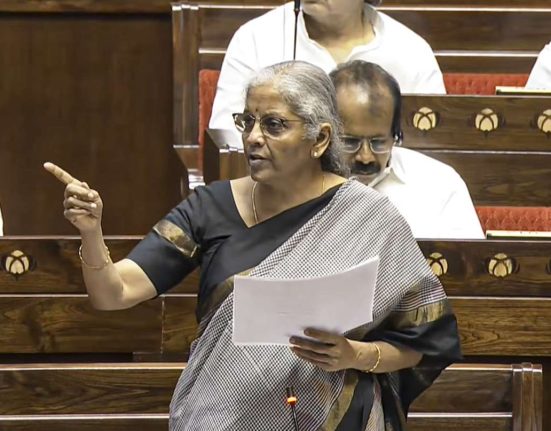It’s been over one year since Synapse Financial Technologies’ collapse sent shockwaves through the banking-as-a-service (BaaS) ecosystem. The fallout continues to deepen, with lingering questions about missing funds, accountability, and the long-term viability of fintech-bank partnerships.
In the latest status report of Synapse’s bankruptcy case filed on April 10 by Jelena McWilliams, the court-assigned trustee, she addressed the shortfall in customer funds, most recently estimated between $65-95 million.
“It appears that a shortfall between the amount of funds held at some partner banks and funds expected to be held based on the Synapse ledger existed prior to Synapse’s bankruptcy. As a result, many end users still have not received their expected amount of funds and these amounts are subject to ongoing appeals processes and litigation,” McWilliams wrote.
With no buyers stepping forward and no assets left to sell, Synapse’s bankruptcy proceedings may now end in dismissal or conversion to Chapter 7 liquidation.
As the bankruptcy case slows down, Evolve Bank & Trust, Synapse’s primary partner bank, is facing increased scrutiny.
Flip Technologies Fund (FTF), now known as Upright, alleges that its customers are still locked out of over $240,000 in accounts managed through Synapse Brokerage, LLC. The real estate fintech company says that Evolve has yet to respond to multiple requests for clarification regarding these missing funds.
At the request of FTF, Judge Martin Barash, who presides over Synapse’s bankruptcy case, granted a Rule 2004 examination of Evolve, a formal legal process that allows someone to require a person or organization to testify or provide documents in a legal case, similar to a deposition.
In response to a request for comment, an Evolve spokesperson stated that the bank has no further response other than the general statements on the Synapse-Evolve situation that it has provided on its reconciliation page.
Political attention is also growing. In a sharply worded letter sent on April 22, 2025, Senator Elizabeth Warren and three other U.S. senators criticized the Federal Reserve and its Committee on Consumer and Community Affairs Chair, Michelle Bowman, for failing to act on early red flags regarding Evolve’s practices.
“You did not respond to the clear warning signs in the years leading up to the Evolve-Synapse meltdown,” the letter said, referencing Synapse and Evolve’s crumbling relationship since 2022, both entities’ knowledge of a shortfall well before Synapse’s collapse, Evolve charging millions in fees directly from Synapse customer accounts, and Evolve’s assets tripling over three years.
The senators also noted that Bowman resisted stronger safeguards by voting against improved third-party risk management guidance as recently as 2023.
Bowman, who has advocated for fostering innovation in financial services, previously stated: “The obligation to be receptive to innovation falls more heavily on regulators.”
But, in light of the Synapse-Evolve debacle, critics like Senator Warren argue that this stance has allowed major oversight gaps to persist.
These gaps now threaten public trust in fintech’s role in modern banking. While the idea behind BaaS was to offer faster, more flexible financial services by pairing fintech businesses with smaller banks, the Synapse debacle has revealed vulnerabilities that can leave consumers without access to their money, without answers, and without a clear legal framework to pursue restitution.
For consumer advocates and users, the solution seems clear: enforce transparency and consumer protections.
“There just needs to be more transparency,” said Bradley Lott-Tilery, a Yotta customer who is locked out of over $30,000 in savings. “Hey, this is where your money’s going. It’s going to be in this account. Here’s the account number for it.”
Yotta is one of the many fintech companies impacted by the shortfall.
Dylan Edwards, another Yotta customer who is out over $19,000 in savings, believes that stronger regulation is needed in digital banking. “Either some policy has to be put in place to protect people’s funds … or there shouldn’t be fintechs that are allowed to exist that take in all this money from people,” Edwards said.
Meanwhile, last month, reporter Jason Mikula filed a federal lawsuit against the Federal Reserve, seeking compliance with a Freedom of Information Act (FOIA) request he submitted to the government agency nearly a year ago to investigate the shortfall.
“Despite granting ‘expedited’ processing … The Fed has yet to produce any documents or to cite any exemptions from doing so in response to my request,” Mikula said recently in a LinkedIn post.
Synapse’s failure raises a pivotal question for the future of fintech: Can innovation coexist with consumer protection?
Ronnie Duke, who lost access to his $23,000 in savings at Yotta, remains hopeful but cautious.
“I’m not shut off to innovation, and I want companies to develop better products … But I would [approach them] with a lot more scrutiny,” Duke said when asked if he would entrust a fintech company with his money again.
For now, the industry faces a reckoning. Without clearer regulations and increased transparency, the promise of financial technology services may continue to be undermined by cases like Synapse, where innovation, without proper oversight, has left thousands of customers in peril.







